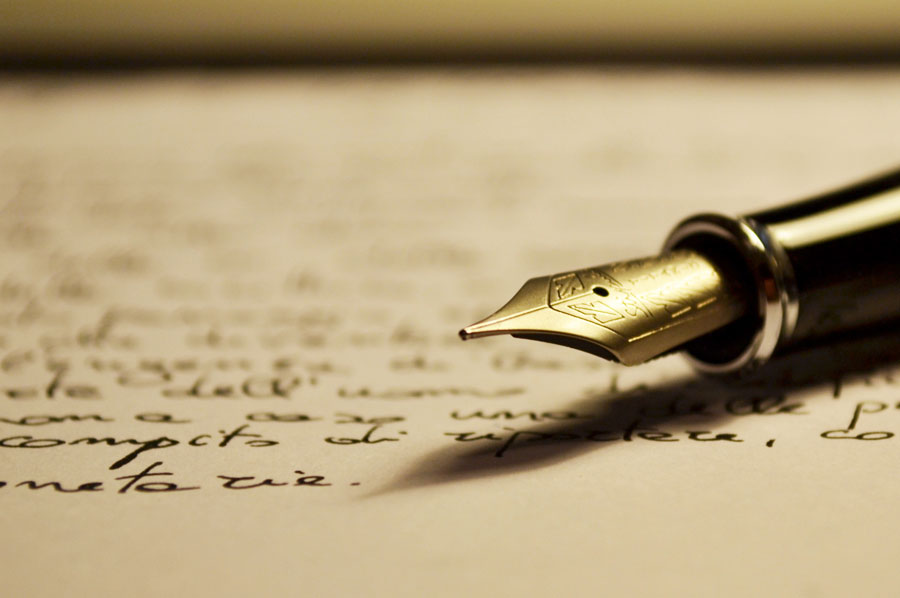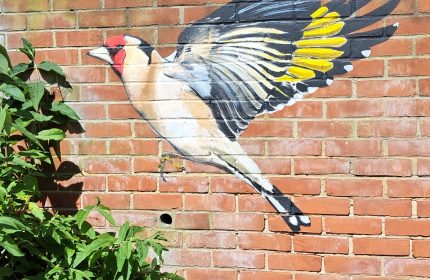Sunday Salads
When I was young, I recall I loved to eat cucumber – not in those slight, prissy slices, regardless of skin on or off – no, I could eat a whole one, gnawing it just as it was. Cucumber is refreshing in any case, but so much more of a thirst quencher when it’s eaten ‘au naturelle’. Whole cucumber, cut in half, and just devoured. My summer treat – especially since, every Sunday in summer, we had salad for Tea. Cucumber, a great wedge of Red Leicester, pickled beetroot, lettuce, boiled egg (I skipped that – I was a fussy little bugger), spring onions, and either ham, or tinned salmon, with the crunchy little bones mixed in it. All the above, as is obvious I suppose, since it’s the first paragraph of the book, is apropos of nothing, other than the fact that my daughter is reading a book called ‘Cool As A Cucumber’, and, after switching her reading light off and coming downstairs, I set to thinking about these things. Does everybody do that? I suppose (or can only hope) that we do. Something crops up, you recall something from your past, it leads on to other thoughts – it may even lead you to write them down‚ See, there I go again.
I begin to write this, because it occurs to me, more and more every day, that I know next to nothing of my parents’ lives before my involvement in them. As each day passes now that I’m a parent, I think about how little I can tell our children about mum and dad, other than how much they would love them, and be loved in return. The main reason, then, for this account, is to shed a little light on my life, for them to read when I’m either gone, or no longer in a position to tell them tales of who I am, what I’ve done, why I did it, and why it went wrong, or so spectacularly right once I met their mother and they burst forth on the world as a result of that love. They may not want to know, they may well find it excruciatingly dull – Charlie Small I most certainly am not – but at least there won’t be an empty space where their father’s previous life is concerned, which is the part that’s hardest for me to come to terms with. I was born in July, 1962, shortly before the Sixties burst open with the advent of The Beatles. I think it was very nice of them to wait until after I was born to make their entrance; given the fact they actually recorded a version of Love Me Do in June, it appears they were conscious of the fact they’d spoil this story by entering the scene too soon, so pleasingly waited until November to release the song. I have been forever grateful, and will continue to be so, as evidenced by the amount of money I have given to each of them over the years. As I have to E.M.I., though what they ever did for it, I don’t know.
I was a ‘late’ baby; mum and dad were both 40 when I was born, and my brother and sister were 12 and 9. I found out much later, in fact after both my parents had died, that they’d had another child who had been still-born. The facts of this are still foggy to me – I don’t know how long before my birth this happened; I’d imagine 2 or 3 years, but that’s purely conjecture. Like a lot of this story, for whatever reason I was never told, nor did I ever ask. Since I was certainly big enough and ugly enough when I found out about my lost older brother, I have no idea why I failed to ask then. I was 29, married, moved away – so why, then, didn’t I? Possibly because I still had a lot of the spoilt child about me, and I wanted to hide from it, and from the fact that they were both gone now, way before their time, and I thought I’d find out in the natural course of time. Well, here we are, twenty years later, and I still haven’t asked. I promise you, I will do my best to fill in all these missing links once this book is finished. If I can find enough out, I may add it as an appendix.. The fact that I was a late addition, that my parents were quite old (in those days, I think since the trend was not for career women, families were had quite early, and 40 was considered old – seems these days, 40 is probably considered too young, unless you’re already a CEO), and that my siblings were a fair bit older than me, goes some way to explaining why there were huge parts of my parents’ lives that were never open to me, and to why I never asked. I was never really in the position to. We weren’t an open chatty family – not that we weren’t close and very affectionate; mum would always be cuddling us, telling us she loved us, and that was evident anyway – we just never sat down and talked about things like – well, anything, to be honest. Part of that may be down to my brother growing up and leaving home so quickly. The family unit wasn’t a unit for very long, and certainly not at all by the time I was old enough to even think about these things, let alone discuss them.But I get ahead of myself..
Alice Patricia (Pat) D*****, my mum, was born in October 1921, in Shepherds Bush, London. It was a house I visited quite a few times until I was about 7 or 8 (there I go, vague again). A typical London townhouse, I think three storeys high, but with a basement. I was always fascinated by the steps leading up to the front door, and by the steps leading down to the tiny patch of ground between the front of the house and the pavement, and thus to the coal store, and the door to the basement rooms, and the image of them stayed with me. Both my maternal Grandparents were pretty tiny, it seems to me, or at least that’s my abiding memory. They’d both died by the time I was 6, I think, so for all I know Grandad was actually 6′ tall, but I don’t think so, given the stature I inherited. There was a sister, and two brothers; Bet, Dennis & Ron. I knew and loved Auntie Bet best of all; Uncle Den I knew less well, and he died before I was 9; Uncle Ron I knew not at all. He’d been killed in Italy, and in my youth I’d always imagined it to be during the war, since I had been told he’d died when his tank, or armoured vehicle, went over a verge. In actual fact, it was after the war in Europe had ended, but he was still on active service, in 1946. When I was young, I suppose I’d imagined it to be tragic, but no more so than the millions of soldiers, sailors, airmen or civilians who’d lost their lives over those unimaginably horrific 5 and a half years. Finding out later that it was after peace had broken out, makes it seem more of a waste of life, so heart-rending that his parents, and brother and sisters had lost him, just when they all thought that they’d all survived, where so many families had been shattered.
Pat and Bet were beautiful; I’ve seen pictures of them, taken during the war, and they stand out. In fact I remember a picture that showed them to be not unlike the then Princess Elizabeth and Princess Margaret, with whom they were near contemporaries. Mum was a brunette, and Auntie Bet fit the description ‘flame-haired’. I know nothing of what they did, what their ambitions were, when they were young. I do know (or think I know) that mum had an opportunity to go to Grammar school, and there was veiled talk about further education beyond that, but, and this is only an assumption, World War 2 put paid to that. Mum joined the WRAF, as I think did her sister. Somehow, as a result of that, and of the rootlessness and wrenching apart of families that the war led to, Mum met Dad. In an age before the war, it would have seemed unlikely that two people born so far apart would have even met, let alone married. Mum born in West London, Dad in Lincolnshire, 170 miles away. And yet it was only because of this horrendous conflagration, with so much death and destruction, displacement and rupturing of families, that our family, my immediate family, came to be. Neither of my parents, despite the fact they came to find each other because of it, were ever in the least bit sentimental for ‘The War Years’. I have them to thank for fashioning my opinion of what war means, and what it can do to peoples lives and friendships, and my thanks are eternal. Not for them the rosy reminiscences of times when everyone pulled together, and every man and woman looked after each other, and you could leave your front door unlocked. No memories of how, with backs to the wall, and shoulders to the grindstone, united against the enemy the nation fought its way to freedom for all. No, when they spoke of it, which wasn’t often (usually on occasions like the Remembrance Day Tattoo, or watching the occasional war film), they were quite definite. Whilst they’d made friends, of course, with people they would never have met in other circumstances, and they were relieved to have made it through relatively unscathed, their memories were more to do with how much it hurt to lose friends and acquaintances, and I suppose in Mum’s case, with her parents in London, the constant fear about what may be happening at home on a daily basis would have played havoc with her mind. That fear, that no-one born in the last 65 years can possibly know, can only imagine, was with them and the millions like them for almost 6 long, excruciating years.
Written by Steve Pickwell
jessjackdad would love your feedback, please leave your comments below:
Showcase your literature
Log in to contribute
You need to be logged in to interact with Silversurfers. Please use the button below if you already have an account.
LoginNot a member?
You need to be a member to interact with Silversurfers. Joining is free and simple to do. Click the button below to join today!
Join



















